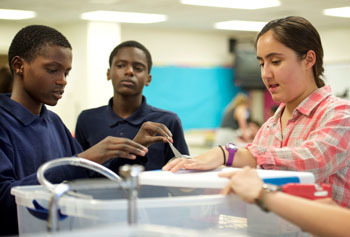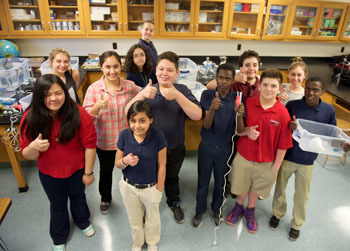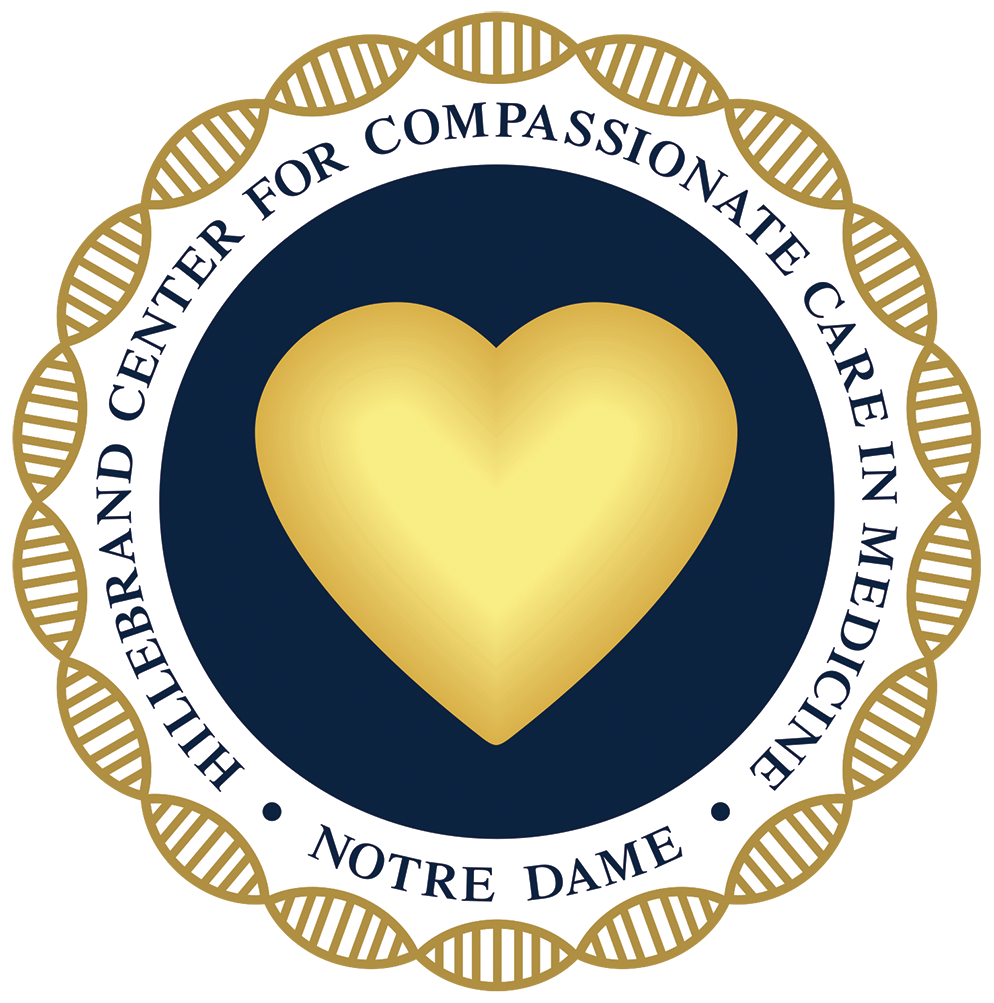
Through a multidisciplinary approach, the sustainability minor at Notre Dame prepares students to serve as leaders in their communities by making constructive and substantive contributions to the development of more sustainable practices for the benefit of their own personal and professional lives, the lives of others, and the lives of future generations.
As part of the minor, students are required to complete a capstone project of their choice during their senior year. Shella Raja, a biological sciences major, and double minor in anthropology and sustainability, took a unique approach to her project and decided to incorporate a community service component with her research.
Raja’s project, Aquaponics Across the Spectrum, focused on teaching an all-inclusive workshop about aquaponics, a form of sustainable agriculture that grows plants with a closed-loop, low-impact cycle between fish, water, and plants. To implement the program, Raja partnered with Green Bridge Growers, a local organization focused on growing good food and providing jobs for young adults on the autism spectrum.

For five weeks, Raja and a group of volunteers worked with a group of South Bend middle school students, who were both autistic and neuro-typical, and taught them about plant and fish anatomy, water chemistry, and photosynthesis. The workshop concluded with each student building their own aquaponics system.
“I found that community-based research is really rewarding,” Raja said. “Some of the logistics of starting a pilot program can be difficult, but it was so rewarding to see the students learn and to see this project grow into something I didn’t expect.”
As part of her capstone project, Raja created a website for the workshop, which included a blog.
Watch the video to learn more about Aquaponics Across the Spectrum.
Originally published by at science.nd.edu on May 20, 2015.

